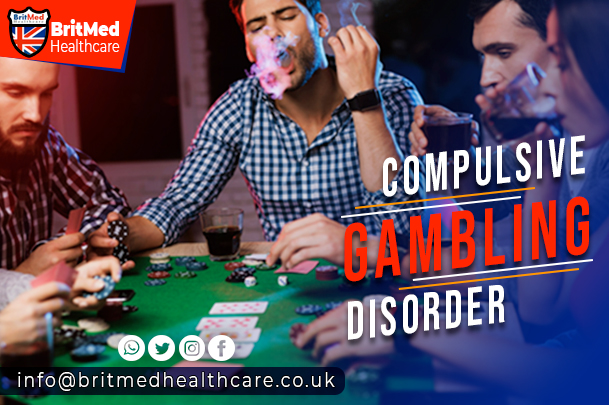Anxieties, Signs, and Cure-All for Compulsive Gambling Disorder
Those who suffer from compulsive gambling condition are unable to control their urges to gamble, even when doing so puts their mental and physical health at risk.
Can You Explain Compulsive Gambling Disorder?
Problem gambling disorder is characterized by an overwhelming need to gamble, which is uncontrollable and worsened by feelings of shame, guilt, and worry. Anxieties, guilt, shame, and a persistent want to gamble are symptoms of compulsive gambling disorder. Signs of Excessive Gambling Prescription
These four steps anticipation, planning, gambling, and spending make up the main symptoms of compulsive gambling disorder. Anxiety, excitement, or even euphoria can be experienced by those who suffer from compulsive gambling condition.
The Roots of Compulsive Gambling and What Sets It Off
According to recent studies, a number of variables can facilitate the development of compulsive gambling disorder, including:
-A history of mental illness in one’s family
-A hereditary susceptibility to mental illness
-Inconsistencies in brain chemistry Cultural and social aspects
-Affective variables: tension, worry, or poor self-esteem
Data on Compulsive Gambling Abuse
In 2013, Credit Donkey.com surveyed people about their gambling habits. They Found that 36.7% of people felt guilty or ashamed after gaming, and 20.5% of those people hid their gambling from their families. In addition, 4.7% of respondents identified as “compulsive shoppers, and 26.7% said they checked their bank balance weekly or more often.
Approaches to Treating Casino Gambling Compulsive Disorder
Medication and psychotherapy are the cornerstones of treatment for compulsive gambling disorder. One strategy that raises awareness of negative thoughts and behaviors is cognitive-behavioral therapy.
Approaches to Treatment
Additional choices for treating compu Isive gambling disorder are:
-Medication: It may be recommended to alleviate symptoms.
-Cognitive therapy: It seeks to help the patient become more self-aware and change negative thought patterns.
Ways to Assist Oneself
People who suffer from compulsive gambling condition should also take the following steps to help themselves:
-Stay away from buying things on the spur of the moment
-Keep to your budget and stick to it
-Reach out to loved ones for encouragement
-Practice mindfulness and self-compassion.
In summary,
The complex nature of compulsive gambling illness necessitates treatments that are just as complex. In order to overcome their symptoms and acquire more positive attitudes toward money, individuals suffering from this disease might undergo proper therapy and receive necessary support.
Hashtags:
#CompulsiveGamblingDisorder
#GamblingAddiction
#MentalHealth
#Therapy
#SelfHelp
Websites related to the article:
Britmed Healthcare: https://britmedhealthcare.co.uk/blog/
Nightingale Hospital: https://www.nightingalehospital.co.uk/specialist/prof-ahmed-elmissiry/
Top Doctors UK: https://www.topdoctors.co.uk/doctors/prof-ahmed-el-missiry/
Contact Information: WhatsApp 08009708017
References:




